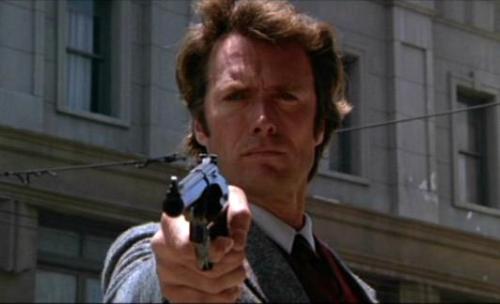NAM: Foregrounding Weapons
by Disphotic
This is the last of several extracts from the introductory essay to my latest project, Vietnam Deprimed. It explores the notion of horror, its representation in visual culture and media, and how weapons are frequently foregrounded while images of the destruction they cause to the human body are hidden in various ways.
As I have mentioned, news media have increasingly opted to show the hardware of war rather than the consequences, an effect described as ‘technofetishism’. This tendency also extends into entertainment media, particularly cinema, where movies have helped to reposition public loyalties to the military away from increasingly irrelevant cold war ideologies towards technology.
In Top Gun (1986) sleek American aircraft (and some notably less sleek Soviet ones) provide a technoerotic thrill as they fight without actually fighting. Similarly, games like Call of Duty: Modern Warfare boast ‘more than 70 new and authentic weapons’ as a selling point. As well as serving to distract from the horror of war, media like this contribute to a discourse in which high– tech, ‘civilised’ nations have the right to dominate low– tech, ‘barbarous’ ones. [Stahl, p.28]

Another tendency in entertainment which is linked to technofetishism is the conflation of weapons with abstract moral principles. This is partly a consequence of America’s relationship with guns, their centrality in the constitution, and their position in the narrative of a ‘frontier spirit’. Problematically, however, this has led to the gun coming to embody ideas as diverse as justice and law-breaking, freedom and repression.
As examples of this conflicting moral message, in Destry Rides Again (1939) guns always represent criminality, as a frontier sheriff abandons them and brings armed lawbreakers to justice through non-violent means. By contrast in Dirty Harry (1971) the iconic Magnum revolver used by the protagonist comes to represent the idea of justice, albeit in the form of unsanctioned violence, rather than impotent legal system. Weapons clearly are not capable of embodying or defending positive ideals in themselves, and are just as capable of defeating them or representing negative principles, but contemporary cinema frequently suggests otherwise.

The effects of weapons are also often highly stylised. In the long running television series The A-Team, a group of heavily armed soldiers of fortune are depicted as never killing (with one exception) or badly injuring their antagonists. Likewise computer games encourage an unrealistic view of weapons in which being shot can be solved by simply reloading a saved game and starting again.
These phenomena are not consequences of the Vietnam War, rather they have origins deep in American history, and reflect the the main priority of the US entertainment industry to distract audiences rather than lecture them. However, because the trauma of defeat in Vietnam was one which Americans came to terms with largely through media like cinema, and because of America’s cultural hegemony, the resulting artifacts were exported and had a global influence.
———-
Short bibliography:
Roger Stahl, Millitainment inc.